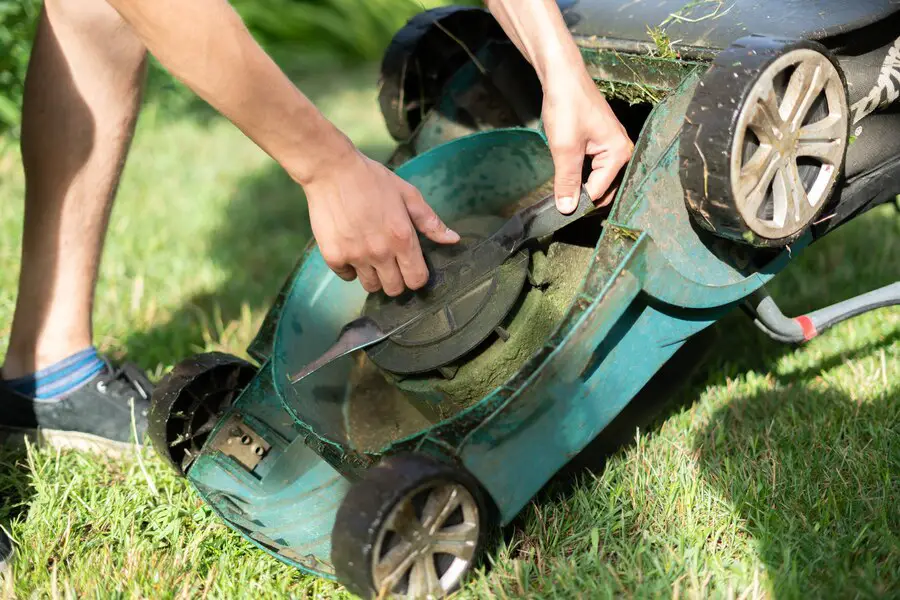
When it comes to lawn maintenance, your trusty lawn mower is often the unsung hero of the task. However, like any machinery, it consumes fuel, and if you’re noticing that your mower seems to be burning through gas faster than expected, it might be time to consider some modifications to improve fuel efficiency. Not only does improving fuel efficiency save you money, but it also helps reduce your environmental footprint.
In this comprehensive guide, we’ll walk you through various ways to modify your lawn mower for better fuel economy. We’ll discuss simple tweaks, tools, and techniques you can use to get more mileage from every tank. Whether you’re a seasoned DIY enthusiast or a beginner, these tips will empower you to boost your mower’s performance while keeping your lawn looking pristine.
Why Fuel Efficiency Matters for Your Lawn Mower
Before we dive into modifications, it’s important to understand why fuel efficiency is so crucial for your lawn mower. Here are some key reasons:
- Cost Savings: Fuel is a recurring expense when using your mower regularly. Improving fuel efficiency means fewer trips to the gas station and more money in your pocket.
- Environmental Impact: Lawn mowers are often powered by gasoline, which contributes to greenhouse gas emissions. By optimizing fuel use, you reduce your carbon footprint.
- Extended Mower Life: Running your mower with the correct modifications and maintenance practices can reduce strain on the engine, leading to longer operational life and fewer repairs.
1. Keep Your Mower Well-Maintained
Before making modifications, it’s essential to start with a well-maintained mower. A mower that’s been neglected will likely consume more fuel. Here’s what you need to do:
Clean and Replace the Air Filter
A clogged air filter reduces the airflow to the engine, causing it to work harder and burn more fuel. Regularly check and clean your mower’s air filter. If it’s too dirty to clean, replace it.
- Tip: Use a clean rag to wipe the filter, or tap it gently to knock off any dirt. Replace it every 100 hours of operation or once a season, depending on usage.
Check and Change the Spark Plug
A worn or dirty spark plug can cause incomplete combustion, wasting fuel. Clean the spark plug or replace it if it’s old, and ensure the gap is correct for your mower’s engine.
- Tip: Consider upgrading to a more efficient spark plug, such as an iridium spark plug, which offers better fuel efficiency and engine performance.
Oil Maintenance
The engine oil lubricates your mower’s internal parts and helps it run smoothly. Old or dirty oil increases friction, which reduces fuel efficiency.
- Tip: Change the oil every 50 hours of operation or once per season. Use high-quality oil recommended by the manufacturer.
2. Modify the Carburetor for Better Fuel Mixing
The carburetor plays a key role in mixing air and fuel for combustion. If it’s not functioning correctly, it can cause your mower to burn fuel inefficiently.
Adjust the Carburetor
Most modern mowers have adjustable carburetors that can be fine-tuned to deliver a more efficient fuel mix. The goal is to have the right ratio of air to fuel—too little air or too much fuel can result in poor combustion.
- Tip: Refer to your mower’s user manual for carburetor adjustment instructions. Generally, you’ll adjust the screws for the air/fuel mixture to achieve a leaner mix for better fuel economy.
Upgrade to a High-Efficiency Carburetor
Some aftermarket carburetors are designed specifically to improve fuel efficiency. These carburetors help optimize the fuel mixture and ensure the engine runs smoothly.
- Example: Aftermarket carburetors like the Oregon 72-108 have been shown to provide more consistent fuel mixing, which can help reduce fuel consumption.
3. Consider Switching to a Lighter Oil
Using the wrong oil can reduce fuel efficiency. Standard oils might be too thick for some mowers, causing unnecessary engine drag.
Use the Right Viscosity
Always check your mower’s manual to determine the correct oil viscosity. Using too thick or too thin an oil can lead to inefficient engine performance.
- Tip: A lighter oil, such as 10W-30, can improve fuel economy by reducing friction in the engine. It’s important to use oil that’s rated for small engines to prevent unnecessary wear.
4. Install a Fuel-Saving Kit
Many companies now offer fuel-saving kits that include components like high-efficiency spark plugs, carburetor modifications, and exhaust upgrades. These kits can optimize the fuel-air mixture, improving both combustion and fuel efficiency.
Example: Briggs & Stratton Fuel-Saving Kits
Briggs & Stratton offers fuel-saving kits that are specifically designed to reduce fuel consumption by fine-tuning the engine’s performance. These kits are easy to install and can be a cost-effective option for improving your mower’s fuel economy.
5. Upgrade the Blades for Better Efficiency
Your mower’s cutting blades play a direct role in fuel efficiency. Dull or damaged blades cause the engine to work harder, leading to increased fuel consumption. Keeping the blades sharp can make a noticeable difference.
Sharpen the Blades Regularly
A sharp blade cuts the grass more easily, reducing the workload on the engine and leading to improved fuel economy.
- Tip: Sharpen the blades at least once per season, or more often if you mow over tough terrain. You can use a sharpening stone or take the blades to a professional.
Consider Mulching Blades
Mulching blades are designed to cut the grass into finer particles, which helps them break down faster and provides better airflow beneath the mower deck. This can reduce the load on the engine and improve fuel efficiency.
- Example: A mulching blade like the MaxPower 561739 can increase air circulation beneath the mower, reducing fuel consumption over time.
6. Tune-Up the Engine for Efficiency
Regular engine tune-ups are key to keeping your mower running smoothly and efficiently. By performing a tune-up, you ensure that the engine is performing at its best, which directly impacts fuel efficiency.
Adjust the Valves
The intake and exhaust valves control the air/fuel mixture entering and exiting the engine. If the valves are not properly adjusted, it can lead to poor fuel combustion, causing the engine to consume more fuel.
- Tip: If you’re not familiar with valve adjustments, consider taking your mower to a professional for a tune-up.
Replace the Fuel Filter
A clogged fuel filter can prevent fuel from reaching the engine properly, which causes it to work harder and consume more gas.
- Tip: Replace the fuel filter at least once per season, or more frequently if you notice a decrease in engine performance.
7. Keep the Tires Properly Inflated
While it may seem unrelated, under-inflated tires can cause your mower to consume more fuel. When the tires are not properly inflated, the mower faces more resistance, causing the engine to use more energy (and fuel) to move the mower.
Check Tire Pressure
Maintain proper tire pressure as per your mower’s specifications to ensure optimal performance and fuel efficiency.
- Tip: Invest in a simple tire pressure gauge and check the tires regularly to ensure they are properly inflated.
8. Operate Your Mower Efficiently
Sometimes, the key to improved fuel efficiency lies in how you operate your mower. By following a few best practices, you can reduce fuel consumption:
- Mow when the grass is dry: Wet grass requires more effort to cut, leading to higher fuel consumption.
- Avoid over-filling the fuel tank: Filling your tank to the brim causes fuel spillage and unnecessary waste. Only fill it to the recommended level.
- Use the right speed: Don’t push your mower to the maximum speed—use a moderate pace that ensures a clean, efficient cut without overloading the engine.
Conclusion: Save Money and Fuel While Keeping Your Lawn Perfect
Modifying your lawn mower for better fuel efficiency doesn’t have to be difficult or expensive. By performing regular maintenance, adjusting the carburetor, using the right oil, and considering some strategic upgrades, you can significantly reduce fuel consumption, save money, and contribute to a greener environment.
Every little change adds up, and over time, you’ll notice a real difference in your mower’s performance and your wallet. Whether you choose to go all-in with a fuel-saving kit or stick with simple DIY tweaks, it’s clear that small changes can lead to big improvements in both fuel efficiency and mower longevity.



